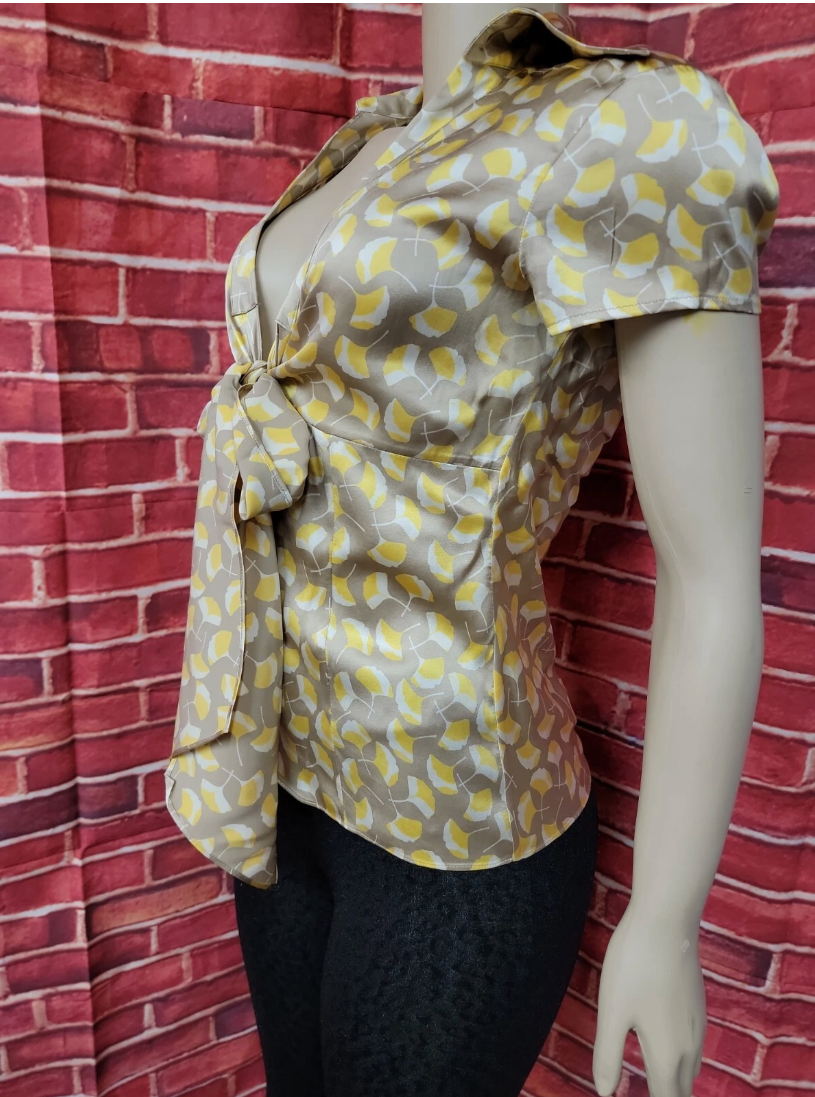My Kind of Gender Reveal Party
Why this cis mom changed her pronouns

There weren’t many ways to be female when I was growing up in the ’80s in the suburbs of America. In middle school, we girls were given a life-size rubber baby to diaper. This was meant to demonstrate an awesome responsibility that our future would bequeath unto us. I’m serious. This was in an actual class, in public school.
Feminism had happened. Abortion was legal. My mother regularly told me “you can be anything you want.” But despite this, girls—because only girls took this class—were still being taught to pin cocktail napkins to a doll’s butt.
The class was called “Home Economics.” We were not children. They could have taught us about buying a house. Instead, they had us embroidering dots onto mushroom-shaped pillows, making jello, and playing with a blinky-eye doll on a lab table.
Bachelor survival?
I was embarrassed. Our teacher looked tired. I had seen her in the faculty lounge smoking a cigarette.
The boys, on the other hand, had a class called “Bachelor Survival.” They were dealt no rubber baby. These boys would grow up to become men who would refuse to change diapers. I often hear about these men. Their number includes millennials, not just Gen Xers, and they won’t change the diaper on any kid, not even their own.
He did not get that assignment. It was not his job.
His job is to survive as a bachelor until a she comes along whose job is “home.”
When my daughter came out as transgender, I had to learn to use the pronoun she to refer to the child I had been raising as a boy, a he, for 13 years. I tried it out and saw how Izzy beamed at being referred to by a word that felt right to her. At first, I was afraid saying “she” would seem strange or wrong to me, but it didn’t. It fit.
Not natural
Izzy had recognized her true self, risked to share that self with us, and was thrilled to be accepted and recognized by family, friends, and (most of her) teachers.
It was then I came to wonder whether my pronouns belonged to me the same way. Did she/her feel as right and natural to me? In fact, it did not.
The occasion to think about pronouns caused me to realize that my she/her is, in fact, different from my daughter’s.
My daughter had claimed the her in herself. My her, on the other hand, was stuck on.

Let me explain.
The word “girl,” assigned by a doctor and accepted by my parents without question on a state birth certificate, matches the body parts I was born with. I feel like a girl inside and look like one outside. That’s not true for everybody, but it’s true for me. I am not transgender but cisgender (cis is a prefix that means “on this side,” and trans means “on the other side”).
Discomfort
I identify as female, always have, yet it feels uncomfortable to think of myself as she/her.
Over months, as I sat with my discomfort, scenes from my own coming of age started floating back. They came slowly at first, then unrolled more quickly as the “assigned” part of gender assignment became clear.
Anecdotes:
In 11th grade, a guy wearing a K-brand jacket and a mullet dug inside my overalls and felt around in me like he’d lost a car key. His fingers were hard and dry. Feminism said have all the sex you want. Was this sex? I didn’t say wait or stop it or even ow. Afterward I sat in the passenger seat of his Datsun with a torn, bruised vagina.
Through the ’80s and into the ’90s, wanting to be noticed and praised by other girls as sexy to boys was ritualized via an endless exchange of appraisals of each other’s clothing, makeup, boobs, hair. Our scrutiny of each other started way back in grade school. When I wore purple short-shorts with pink pockets one winter day, Cindy Zenowski, the curvy, pretty girl in 4th grade said, in front of everyone, “Trying to catch a boy?” I felt humiliated. I wonder what Zenowski felt when she asked me that.
Trapped
In college, upon arriving at a party, I was immediately locked in a room with the other girls and a grain-alcohol-laced beer ball. The boys didn’t let us out till we had drunk it all. We girls spent the next day vomiting, not knowing what the boys had done to us in those hours we were blacked out.

Such hazing acquired a thrill in the retelling of it, as though we had been stamped “desirable” and the initiation was dangerous but exciting, like cliff diving. But our heart-pounding masked a hard truth, one we could not have faced, probably, without words to describe it. And if we described it, we would be blamed for it.
I was 22 when I set up a meeting with an investment advisor because my father regularly got fired from jobs, had no savings, and my parents were broke. I wanted to be in a better place. The banker laughed at me. “You are the only girl worried about this,” he said, taking a call as he waved me out the door.
If he had treated me like a client and showed me how money works, that $2000 savings I had available to invest in 1986 would have grown to more than $100,000 by now. And that’s a conservative estimate.
As I watched Izzy blossom into the she/her she had claimed, I began to recognize that those same pronouns were starting to feel, for me, like a too-small, stained in the armpits shirt.
Contract
I had been assigned “she” and it had never occurred to me—despite my mom repeating Be anything you want, despite my college Women’s Studies classes, despite birth control—that I had any choice in the matter.
My pronouns were fine print in a lifetime agreement the terms of which I had not read because I did not know it existed.
I am the person I know myself to be and want to be treated as. But the she/her clause in my social contract says: “In addition to any other acquired traits, designee shall defer career plans or pursue them only on the condition that she can also manage the entire care of a house; shall want children and assume responsibility for all poo-wiping; shall be available for gropes by strangers or group sexual assault without notice; shall without complaint be interrupted at all times when speaking; and shall have minimal if any personal needs, as per her sex-derived gender designation.”
Insidious
The other day, I was having coffee with a trans woman friend who also loves words. We wondered: is it being called "her" that lands women in these circumstances? Or is it having a body that reads to most people as female?
‘She’ was an insidiously powerful force in my life, I think. Circumstances ride words.
The limits of my language are the limits of my world, the philosopher Ludwig Wittgenstein said. All I know is what I have words for. I think about this idea of Wittgenstein’s a lot. He loved men and had sex with men and was closeted. He did not have the words bi or gay in 1915, let alone gay pride. He had the five furtive syllables of homosexual back when the term was shameful in public, not campy.
One day, on an impulse, I typed “Noa: she/they” into the Zoom box I was occupying for a business meeting. At the time, I thought I would change it back. But I didn’t. I liked how it felt.
She/they holds more than she on its own.
She is connected to the body I was born with and love and did not choose. I don't yet know everything they is connected with. That’s why I like it. They is a pin in an unmapped area of freedom.
Tall boots
Let’s say we’re just meeting. If you go by how I dress, my face, my voice, you might assume my pronouns are she/her. You might not guess they. I don’t look or dress that differently than I did in college. I like skirts and tall boots and things femme. So when I say she/they, it might (depending on who you are) create a little question: How should I be with this particular person?
And that is perfect. It’s exactly what I want.
If I could go back and have she/they from the start, I would. I can picture that small gesture forestalling a certain amount of casual misogyny or even violence.
I would not have been a dismissible entity to the investment banker, but a mystery, a person he had to think about for a second. A second makes a difference when it comes to interrupting assumptions. “I’m Noa, she/they,” I could have said as I walked into that party my first week of college.
Oh. Do I stick this person in the locked room with girls? fraternity guy might have thought.
Pause
A pause can interrupt a habit of not-seeing. It gives time for people meeting me to perceive me, but more important, it gives me time assess a situation.
They lets me hold gender loosely for myself as much as for others. She/they is a reminder to myself that I am still becoming and always will be.
Imagine with me: what if babies, on being born, were referred to as she/they and he/they instead of she and he.
Actually, imagine if we didn’t use pronouns at all when we talked about our babies, but just called them by their names.
Imagine if the names given to newborns were “milk names,” like the tradition in some parts of China. Milk names are temporary, placeholder names.
Claim
Imagine if, at birth, we all had names recognized by the state as temporary, like a learner’s permit before a driver’s license. A gender learner’s permit. Then, when we came of age, we could claim our chosen name and pronouns. We could have a party to let people know what we chose.
A gender reveal party.
Instead of feeling hunted, distrusted, or hated, we are celebrated, blessed, garlanded, sung to, and welcomed into all of our communities as our true selves.
Imagine leaving room for all of our own becoming, because, really, becoming never ends. Nor should it.
My daughter taught me that.
Gender Defiant: Folks Raising Genderqueer Kids is a reader-supported publication. To receive new posts and support our work, consider becoming a free or paid subscriber.



